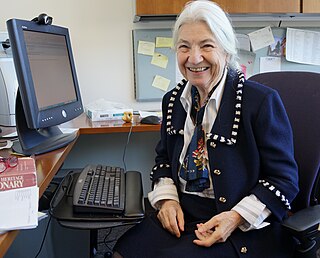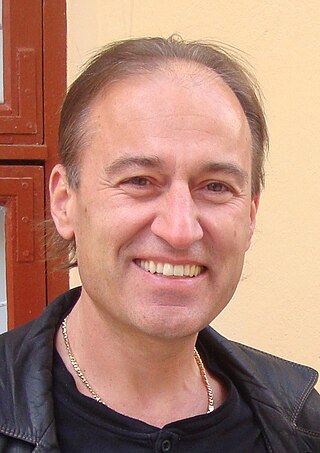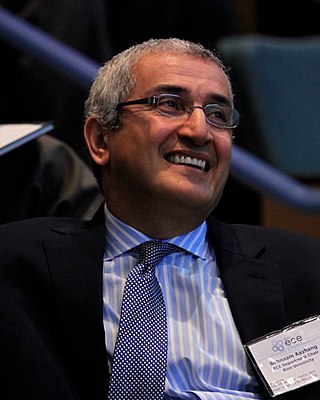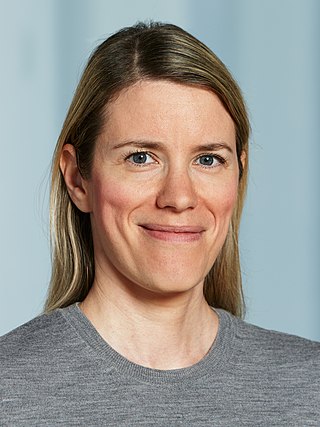
Frederick Phillips Brooks Jr. was an American computer architect, software engineer, and computer scientist, best known for managing the development of IBM's System/360 family of computers and the OS/360 software support package, then later writing candidly about those experiences in his seminal book The Mythical Man-Month.

Niklaus Emil Wirth was a Swiss computer scientist. He designed several programming languages, including Pascal, and pioneered several classic topics in software engineering. In 1984, he won the Turing Award, generally recognized as the highest distinction in computer science, "for developing a sequence of innovative computer languages".

Robert Elliot Kahn is an American electrical engineer who, along with Vint Cerf, first proposed the Transmission Control Protocol (TCP) and the Internet Protocol (IP), the fundamental communication protocols at the heart of the Internet.

Barbara Liskov is an American computer scientist who has made pioneering contributions to programming languages and distributed computing. Her notable work includes the introduction of abstract data types and the accompanying principle of data abstraction, along with the Liskov substitution principle, which applies these ideas to object-oriented programming, subtyping, and inheritance. Her work was recognized with the 2008 Turing Award, the highest distinction in computer science.

Nicholas (Nick) William McKeown FREng, is a Senior Fellow at Intel, a professor in the Electrical Engineering and Computer Science departments at Stanford University, and a Visiting Professor at Oxford University. He has also started technology companies in Silicon Valley.

Ruzena Bajcsy is an American engineer and computer scientist who specializes in robotics. She is professor of electrical engineering and computer sciences at the University of California, Berkeley, where she is also director emerita of CITRIS.

Ueli Maurer is a professor of cryptography at the Swiss Federal Institute of Technology Zurich.
Allen Robert Tannenbaum was an American applied mathematician who finished his career as a Distinguished Professor in the Departments of Computer Science and Applied Mathematics & Statistics at the State University of New York at Stony Brook.

Markus Gross is a Professor of Computer science at the Swiss Federal Institute of Technology Zürich (ETH), head of its Computer Graphics Laboratory, and the director of Disney Research, Zurich. His research interests include physically based modeling, computer animation, immersive displays, and video technology. He has published more than 430 scientific papers on algorithms and methods in the field of computer graphics and computer vision, and holds more than 30 patents. He has graduated more than 60 Ph.D. students.

Behnaam Aazhang is the J.S. Abercrombie Professor in Electrical and Computer Engineering at Rice University and Director of the Rice Neuroengineering Initiative.

Michael Franz is an American computer scientist best known for his pioneering work on just-in-time compilation and optimisation and on artificial software diversity. He is a Distinguished Professor of Computer Science in the Donald Bren School of Information and Computer Sciences at the University of California, Irvine (UCI), a Professor of Electrical Engineering and Computer Science in the Henry Samueli School of Engineering at UCI, and Director of UCI's Secure Systems and Software Laboratory.

David Atienza Alonso is a Spanish/Swiss scientist in the disciplines of computer and electrical engineering. His research focuses on hardware‐software co‐design and management for energy‐efficient and thermal-aware computing systems, always starting from a system‐level perspective to the actual electronic design. He is a full professor of electrical and computer engineering at the Swiss Federal Institute of Technology in Lausanne (EPFL) and the head of the Embedded Systems Laboratory (ESL). He is an IEEE Fellow (2016), and an ACM Fellow (2022).

Hanspeter Pfister is a Swiss computer scientist. He is the An Wang Professor of Computer Science at the Harvard John A. Paulson School of Engineering and Applied Sciences and an affiliate faculty member of the Center for Brain Science at Harvard University. His research in visual computing lies at the intersection of scientific visualization, information visualization, computer graphics, and computer vision and spans a wide range of topics, including biomedical image analysis and visualization, image and video analysis, and visual analytics in data science.

René Vidal is a Chilean electrical engineer and computer scientist who is known for his research in machine learning, computer vision, medical image computing, robotics, and control theory. He is the Herschel L. Seder Professor of the Johns Hopkins Department of Biomedical Engineering, and the founding director of the Mathematical Institute for Data Science (MINDS).
Jan Leonhard Camenisch is a Swiss research scientist in cryptography and privacy and is currently the CTO of DFINITY. He previously worked at IBM Research – Zurich, Switzerland and has published over 100 widely cited scientific articles and holds more than 70 U.S. patents.
Stefano Soatto is professor of computer science at the University of California, Los Angeles (UCLA), in Los Angeles, CA, where he is also professor of electrical engineering and founding director of the UCLA Vision Lab.
Ramin D. Zabih is a Professor of Computer Science at Cornell University and Cornell Tech in Ithaca, New York.

Olga Sorkine-Hornung is a professor of Computer Science at ETH Zurich working in the fields of computer graphics, geometric modeling and geometry processing. She has received multiple awards, including the ACM SIGGRAPH Significant New Researcher Award in 2011.
Luca Benini is a computer scientist who is a Professor of Electronics at University of Bologna and the Chair of Digital Circuits and Systems at ETH Zurich.

Torsten Hoefler is a Professor of Computer Science at ETH Zurich and the Chief Architect for Machine Learning at the Swiss National Supercomputing Centre. Previously, he led the Advanced Application and User Support team at the Blue Waters Directorate of the National Center for Supercomputing Applications, and held an adjunct professor position at the Computer Science Department at the University of Illinois at Urbana Champaign. His expertise lies in large-scale parallel computing and high-performance computing systems. He focuses on applications in large-scale artificial intelligence as well as climate sciences.















